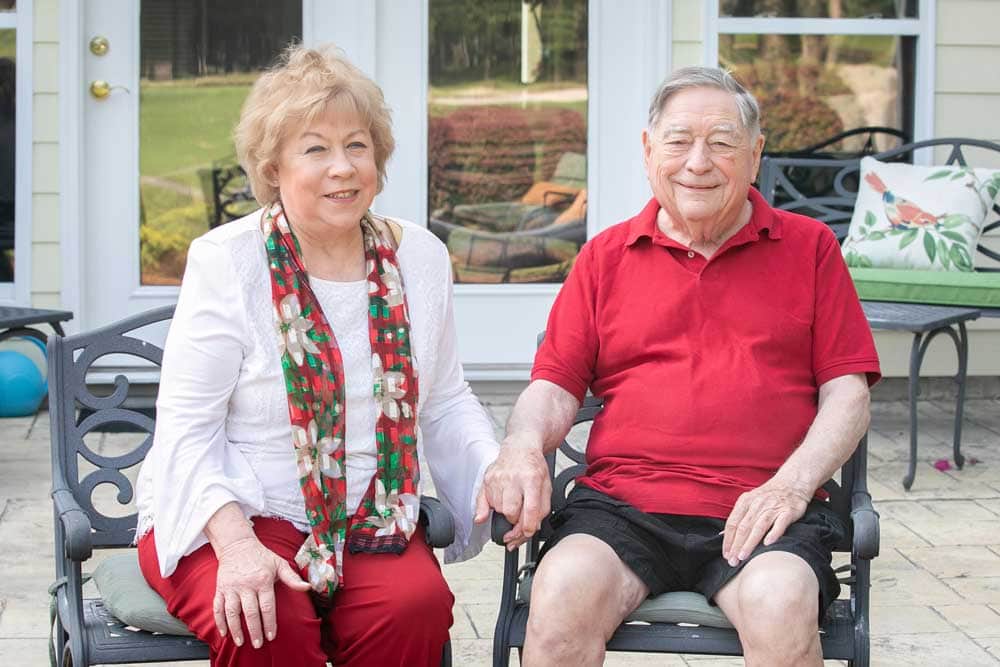‘We need to put some effort where we see the need, and the need is here, right now’

If you’ve been in North Carolina long enough, or you’re well-versed in behavioral health reform, you probably know the story of Willie M.
Willie M. was one of four children in North Carolina who was deemed delinquent — a lost cause — back in 1978. These children were violent and disruptive and plagued by various types of mental health problems. For a long time, the prevailing method of dealing with children like that was shipping them off to reform school or juvenile detention.
The case of Willie M. changed all of that, bringing about a transformation in how our state and others handle children struggling with behavioral health.
At the time all of this was playing out, Carolyn Felton was a teacher in Charlotte, North Carolina, working to help hospital- and home-bound students keep up with their work while they battled illnesses or healed from injuries. Some of those students were struggling with mental illness. Willie M. was one of them.
“I taught him in a hospital/home-bound setting while the case was going on,” she recalls.
“At the time, they didn’t offer enough services or support for families dealing with these children. And it only works if you have coordination with healthcare professionals, families and the schools. It’s got to be a team effort.”
The Willie M. case took a step in that direction, changing how the school system serves children with behavioral health issues. The case also became part of what pushed Carolyn to pursue a new career, in special education.
“I’ve always had a heart for students who are underserved,” she says.
Carolyn got her master’s degree in special education from UNC Charlotte and then spent a decade supporting students with a range of behavioral health issues. She started at Harding Senior High School, where one of her students spent his nights in the school bathroom for days on end. He had run away from his foster home and was no longer taking his medication, finding the bathroom preferable to the structure he had at home.
“He needed that structure, but he wanted to taste a bit of freedom,” she recalls.
Then, at McClintock Middle School, one student in Carolyn’s class struggled with anger and other mental health issues.
“He ended up going to jail for about 10 years,” she recalls. “We exchanged letters and Christmas cards. Now, he’s living in Charlotte and working as a cook in a restaurant. He’s making it.”
After a decade in special education, Carolyn decided to step away from her formal teaching position. She raised children and volunteered, taking the lead on Charlotte Mecklenburg Library’s Charlotte’s Web project, which introduced the community to the internet back in the 1990s.
“We had hundreds of volunteers who learned this new system. We’d teach it to them, and they’d go teach it to others. We’d make it available at places like the men’s homeless shelter to give them access, too,” Carolyn recalls. “Sometimes, I was so tired on the way home from that work that I’d fall asleep on the bus, and I’d have to call my husband to come get me. But it was so exciting.”

Then, about 20 years ago, Carolyn and her family moved to Brunswick County, where she embarked on a new career as a financial advisor. It was a profound shift at the age of 50, but one that allowed her to maintain her focus on helping those around her.
“Being a financial advisor is really about knowing how to use your resources and being nice to people and thinking logically,” she explains. “You give better advice when you care about people.”
And that is perhaps what Carolyn does best. In Brunswick County, she’s become deeply involved with Brunswick Community College, first as a volunteer and then as president of the Brunswick Community College Foundation. She’s also become an avid supporter of Novant Health Brunswick Medical Center Foundation.
“I’ve always felt like this is my home now. What can I do to make this a better place for everybody?” she says.

In Brunswick County, that involves a significant focus on behavioral health, which is often tied to issues involving drug abuse.
In 2016, a North Carolina Office of the Medical Examiner report found that opioid-related deaths had increased by more than 130%. Between January and June of this year, there were 162 documented heroin overdoses, which resulted in 28 deaths. At the same time, the rate of Brunswick County youths experiencing a mental health condition is on the rise. And while the average ratio of mental healthcare providers to residents is 490 to 1 nationwide, the ratio in Brunswick County is 1,310 to 1.
That means it can take days for a referral to a mental health treatment facility — far too long for someone in need.
“Brunswick County is in the midst of an addiction crisis, as is the state of North Carolina and across the United States. The only way to combat that crisis is to address the root problem, which is mental health,” says Brunswick County Sheriff John Ingram.
That’s why Carolyn has become a passionate advocate for giving back to the community you call home.
“I want people to face what we have facing us and be a part of the solution. I want them to put something into their budget that helps support this, whether it’s a planned gift or gifting right now,” Carolyn says. “We need to put some effort where we see the need, and the need is here, right now.”
At Novant Health Brunswick Medical Center Foundation, we work hard every day to support the behavioral health needs of our community. Please join Carolyn and support our efforts by getting involved and giving back.
Together, we can strengthen our Brunswick County community by providing support to those who need it most.
Will you join us?